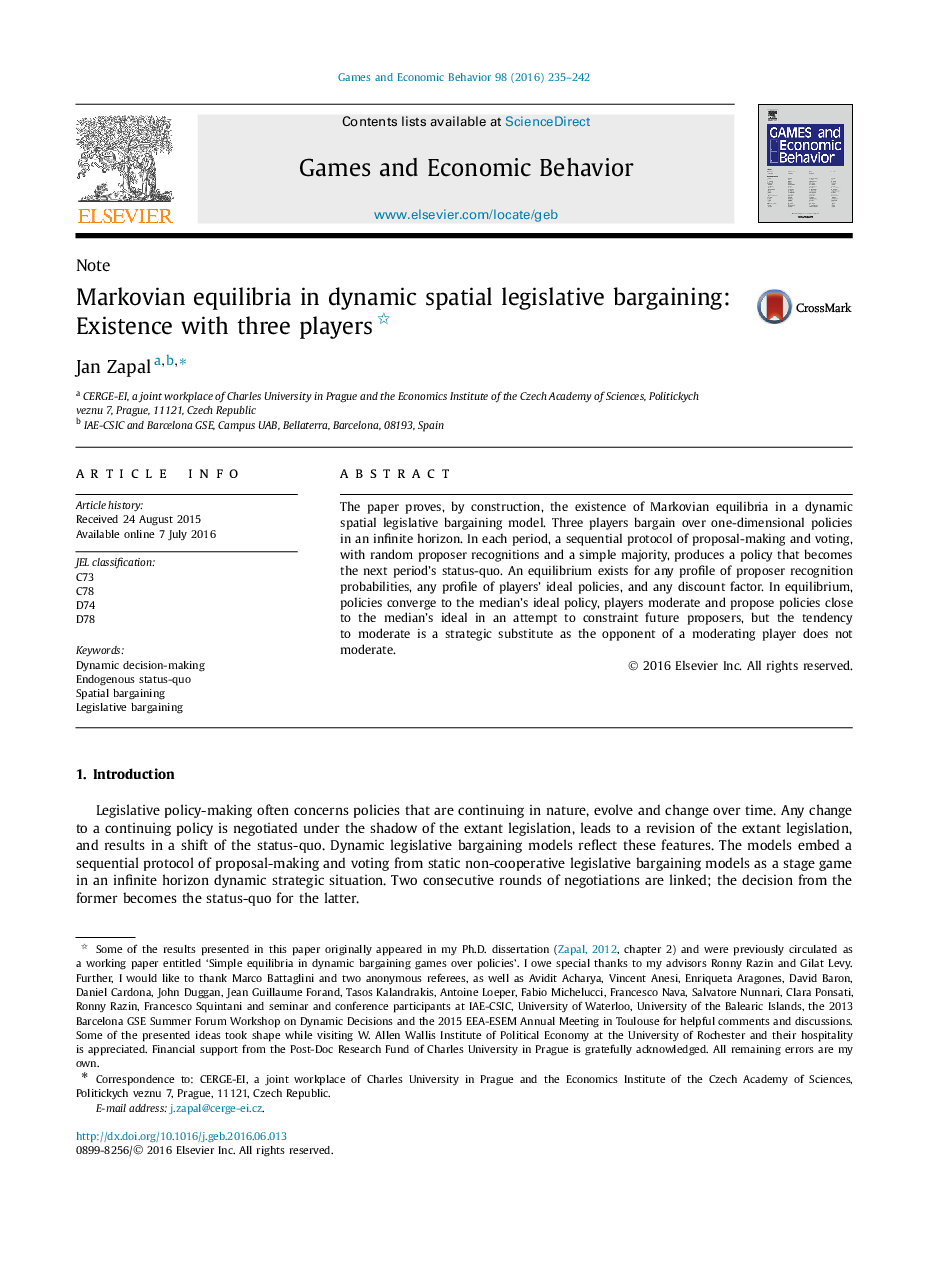| Article ID | Journal | Published Year | Pages | File Type |
|---|---|---|---|---|
| 5071485 | Games and Economic Behavior | 2016 | 8 Pages |
Abstract
The paper proves, by construction, the existence of Markovian equilibria in a dynamic spatial legislative bargaining model. Three players bargain over one-dimensional policies in an infinite horizon. In each period, a sequential protocol of proposal-making and voting, with random proposer recognitions and a simple majority, produces a policy that becomes the next period's status-quo. An equilibrium exists for any profile of proposer recognition probabilities, any profile of players' ideal policies, and any discount factor. In equilibrium, policies converge to the median's ideal policy, players moderate and propose policies close to the median's ideal in an attempt to constraint future proposers, but the tendency to moderate is a strategic substitute as the opponent of a moderating player does not moderate.
Related Topics
Social Sciences and Humanities
Economics, Econometrics and Finance
Economics and Econometrics
Authors
Jan Zapal,
